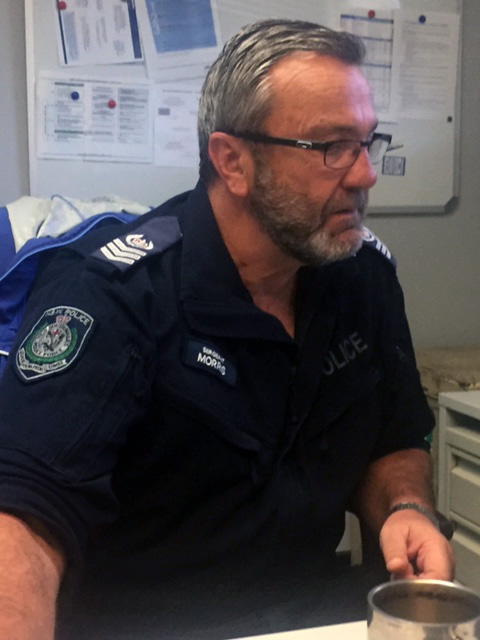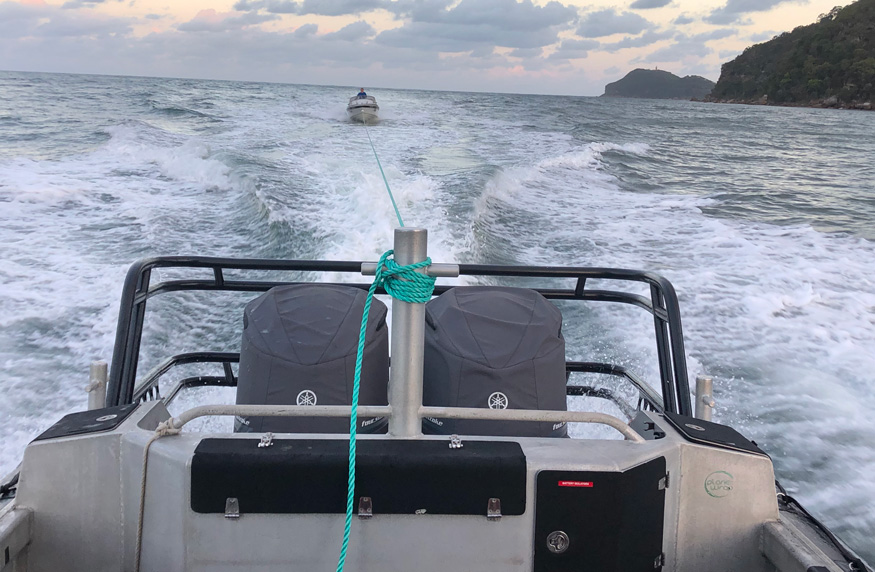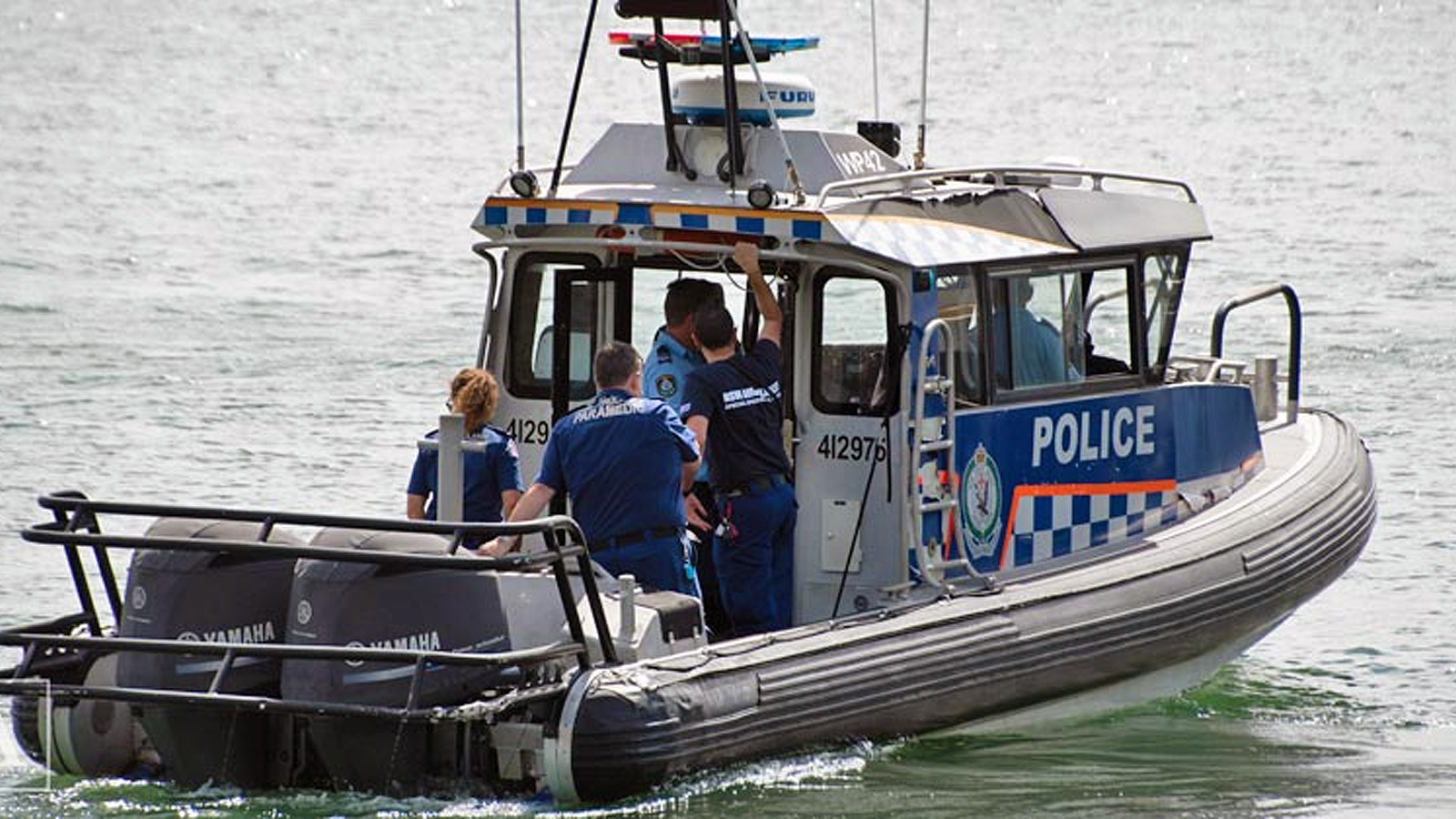It’s a familiar sight on Pittwater – the police boat hurtling through the water heading for who knows where. So where do they go? Who and what are they after?
I’m sitting in the Church Point office of Senior Sergeant Mick Morris of Broken Bay Water Police who has agreed to an interview for Baysnews. Mick has had 36 years with the Police Force and has been with the Water Police for 18 years.
He offers me a cup of coffee or tea and asks how I like it. I ask for coffee, not too strong with one sugar. He makes me a cup of white tea with no sugar which, funnily enough, is exactly how I have my tea, and explains some of the reasons police get called out in Pittwater.

Senior Sergeant Mick Morris – Broken Bay Water Police
“It varies – from medivac to broken down vessels, break-ins, domestic violence and marine search and rescue. We would do on average around 6 medivacs a week – heart attacks, snake bite, pregnancy, diabetes, falls and so on. Neighbourhood disputes are something we get called out for every now and then but it’s not a policing matter. We help where we can but getting called out for neighbourhood disputes is probably one of my biggest bugbears”.
While variety of call-outs is large, the area they police is huge.
“Basically we cover out to Wiseman’s Ferry and beyond – down to Berowra, Cowan Creek, Akuna Bay, Brisbane Waters and out to sea down to Long Reef and as far north as Norah Heads. Even just taking into account the enclosed waters of Pittwater, it’s a big area.”
Where they differ from other sectors like the Sydney Water Police is they deal with us – the offshore residents – which makes their role in the community unique.
There are 16 water police attached to the Broken Bay operation and as Mick says, they mostly have good days and then even better days.
“It’s a good career and we love the environment we work in. The guys that work here all want to work on the water and they like being out in the boat.”
One of the most important things is building trust and a rapport with the offshore community which is not always easy when you’re charged with enforcing the law.
However, Mick believes that most people on boats are nice.

Water Police and Elvina Boat from West Pittwater RFS – Pittwater
“As soon as you get on land, people who are going to be nasty will be nasty to a police officer. But when they’re on a boat – I don’t know why – people are nice. We’ve approached people on boats and been warned they’re violent or they’ll assault police but when we talk to them they’re as nice as pie. 99.9% of people on boats are really great, and they help us.
I ask Mick about the recent spate of outboard motor thefts from the commuter wharf. The thefts have stopped but did they ever catch the culprit/s? Mick says they’re sure they know who it was but were unable to get enough evidence to take it to court. But they managed to put enough pressure on the suspect to make the thefts stop. And his advice on how to avoid this kind of criminal activity?
“Look out for your mates. If you see someone down at the commuter wharf and they look suss, let us know.”
One of the more popular initiatives the community and the Water Police have jointly put in place is The Pudding Club. Expectant mothers can notify the police of their address and the expected birth date so if there’s an emergency the police know where to go.
Marine Search and Rescue is probably one of the more dangerous activities the Water Police undertake. He recalls one incident where Maritime Safety notified them of a couple on a sinking yacht. Mick got a crew together and took off.

Image: Search and Rescue
“The yacht was 400 miles out to sea. It took us 28 hours to get to them in big seas. By the time we got them off their yacht, on the tender, back to the boat and home to dry land we’d been away 3 days. Those jobs are always memorable because you’ve saved someone’s life”.
The day to days of water policing are upholding marine safety, ie making sure people have the mandated safety equipment on their boats; that they’re obeying the No Wash Zones and speeding limits and that people aren’t over the alcohol limit. Mick has his team cover every sector of enclosed waters each week.
The Water Police are here to serve our community and they take that responsibility seriously. So how do you contact them in an emergency?
“If it’s a life-threatening emergency then you call 000. If it’s not life-threatening you can call us on 9910 7899.”
And preferably not if it’s a neighbourhood dispute.
